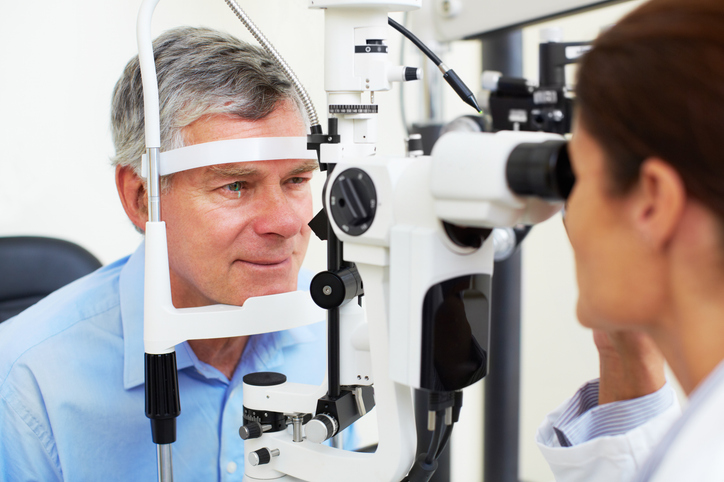What Is the Optometrist’s Role in Glaucoma Co-Management?


Glaucoma is a leading cause of irreversible vision loss worldwide, known insidiously as the “silent thief of sight” for its gradual onset and progression. With the stakes so high, effective management of this condition necessitates a coordinated approach between various eye care professionals, most notably optometrists and ophthalmologists. This collaborative strategy, known as glaucoma co-management, utilizes the strengths and areas of expertise of each practitioner to provide patients with comprehensive care.


Understanding Glaucoma Co-Management
Glaucoma co-management serves as a bridge between the general eye care provided by optometrists and the specialized medical and surgical treatments administered by ophthalmologists. Optometrists play a crucial role in the early detection, monitoring, and initial management phases. They are often the first to recognize signs of glaucoma during routine eye examinations. By conducting tests to measure intraocular pressure, inspecting the optic nerve, and assessing visual fields, optometrists can identify glaucoma at its nascent stages.
Early Detection and Ongoing Monitoring
The early detection of glaucoma is critical; it facilitates timely intervention, which can significantly slow the disease’s progression. Optometrists employ a variety of diagnostic tools and techniques to detect glaucoma before it causes noticeable vision loss. Following diagnosis, optometrists are instrumental in the ongoing monitoring of the disease. Regular check-ups allow for the close observation of the disease’s progression, enabling optometrists to adjust treatment plans in response to changes in the condition.
Medication Management and Patient Education
Management of glaucoma often includes the prescription of medications designed to lower intraocular pressure, one of the primary treatments for the disease. Optometrists not only prescribe these medications but also play a vital role in monitoring their effectiveness and managing any side effects. Furthermore, they provide patients with essential education on glaucoma, empowering them to take an active role in managing their condition.
Referrals to Specialists and Coordinated Care
When glaucoma progresses to an advanced stage or requires surgical intervention, optometrists facilitate referrals to ophthalmologists who specialize in glaucoma treatment. This seamless transition ensures that patients receive appropriate, advanced care without delay. By maintaining open lines of communication with ophthalmologists, optometrists ensure that care is coordinated effectively, and patient outcomes are optimized.
Benefits of Optometrist Involvement in Glaucoma Care
Involving optometrists in the co-management of glaucoma offers several benefits, including more convenient and accessible care for patients, early detection and intervention, and personalized treatment plans. Moreover, the collaborative approach allows for a broader range of perspectives in treating the disease, leading to more comprehensive care.
Ready to Take the Next Step in Protecting Your Vision?
At Vienna Eyecare Center, we are committed to providing our patients with the highest standard of care for glaucoma. Our team of experienced optometrists utilizes the latest advances in diagnostic technology and treatment approaches to manage glaucoma effectively. We work closely with leading ophthalmologists to ensure that our patients have access to the full spectrum of glaucoma care.
If you’re concerned about glaucoma or are seeking expert eye care, we invite you to schedule a consultation with us. Our team is dedicated to helping you preserve your vision and manage your eye health proactively. Contact us at (703) 938-7633 or fill out our online form to arrange your visit. Located in the heart of Vienna, VA, we’re here to serve as your trusted partners in eye health.
Recent Posts
Who Is the Ideal Candidate for Ortho-K?
For many individuals grappling with the inconvenience of glasses or the discomfort of contact lenses,…
Love Your New Glasses? Here’s How to Make Them Last Longer
Opting for a new pair of glasses not only marks an investment in your vision…
The Link Between Neck Pain and Your Vision
Neck pain is a common ailment that affects many individuals, causing discomfort and restricting daily…
Preparing for Your Eye Exam: Tips for Accurate Results
An eye exam is an essential aspect of maintaining optimal eyesight and overall eye health.…
How Stress and Your Mental Well-Being Can Impact Vision
In the bustling and picturesque city of Vienna, VA, Vienna Eyecare Center stands as a…
What You Need to Know About Dilated Eye Exams
Eye health is an essential aspect of your overall wellness, often overlooked until a problem…






